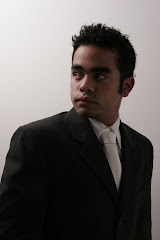Thomas Alva Edison (February 11, 1847 – October 18, 1931) was an American inventor and businessman who developed many devices that greatly influenced life around the world, including the phonograph and the long-lasting, practical electric light bulb. Dubbed "The Wizard of Menlo Park" by a newspaper reporter, he was one of the first inventors to apply the principles of mass production and large teamwork to the process of invention, and therefore is often credited with the creation of the first industrial research laboratory.
Edison is considered one of the most prolific inventors in history, holding 1,093 U.S. patents in his name, as well as many patents in the United Kingdom, France and Germany. He is credited with numerous inventions that contributed to mass communication and, in particular, telecommunications. His advanced work in these fields was an outgrowth of his early career as a telegraph operator. Edison originated the concept and implementation of electric-power generation and distribution to homes, businesses, and factories - a crucial development in the modern industrialized world. His first power plant was on Manhattan Island, New York.
Edison became a telegraph operator after he saved three-year-old Jimmie MacKenzie from being struck by a runaway train. Jimmie's father, station agent J.U. MacKenzie of Mount Clemens, Michigan, was so grateful that he trained Edison as a telegraph operator. Edison's first telegraphy job away from Port Huron was at Stratford Junction, Ontario, on the Grand Trunk Railway. In 1866, at the age of 19, Thomas Edison moved to Louisville, Kentucky, where as an employee of Western Union he worked the Associated Press bureau news wire. Edison requested the night shift, which allowed him plenty of time to spend at his two favorite pastimes—reading and experimenting. Eventually, the latter pre-occupation cost him his job. One night in 1867, he was working with a battery when he spilled sulphuric acid onto the floor. It ran between the floorboards and onto his boss's desk below. The next morning he was fired.
One of his mentors during those early years was a fellow telegrapher and inventor named Franklin Leonard Pope, who allowed the impoverished youth to live and work in the basement of his Elizabeth, New Jersey, home. Some of Edison's earliest inventions were related to telegraphy, including a stock ticker. His first patent was for the electric vote recorder, (U. S. Patent 90,646), which was granted on June 1, 1869.






0 comentarios:
Publicar un comentario